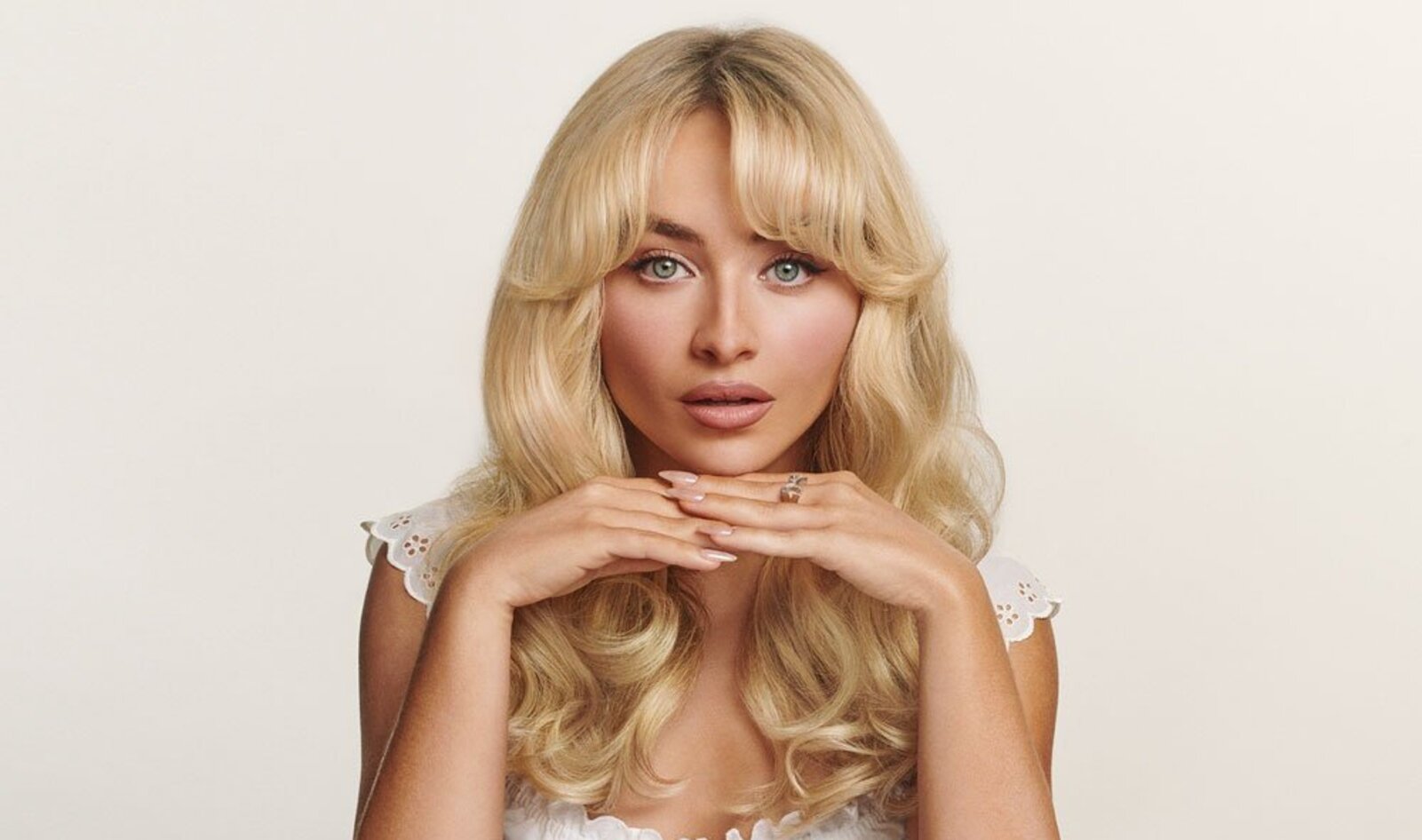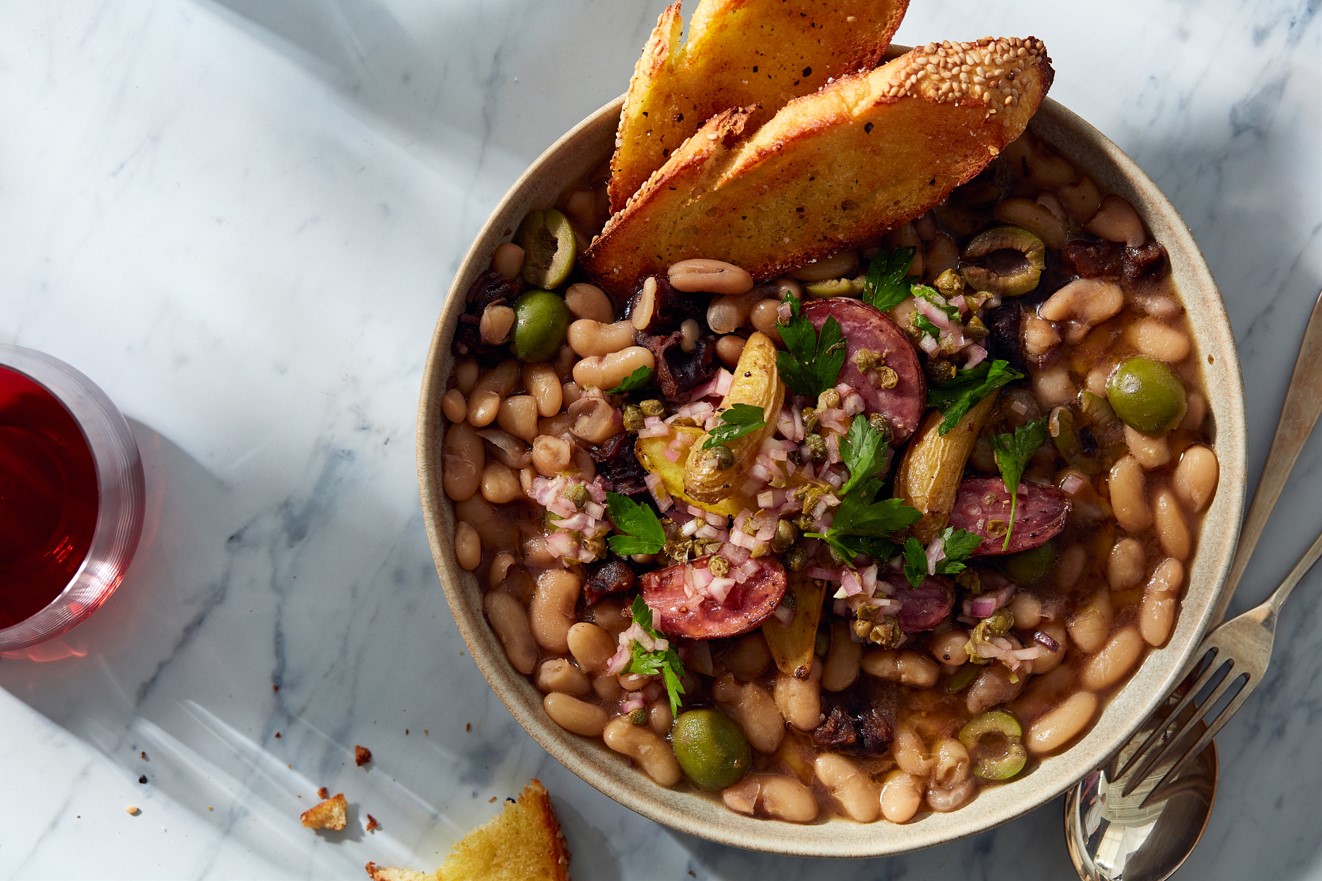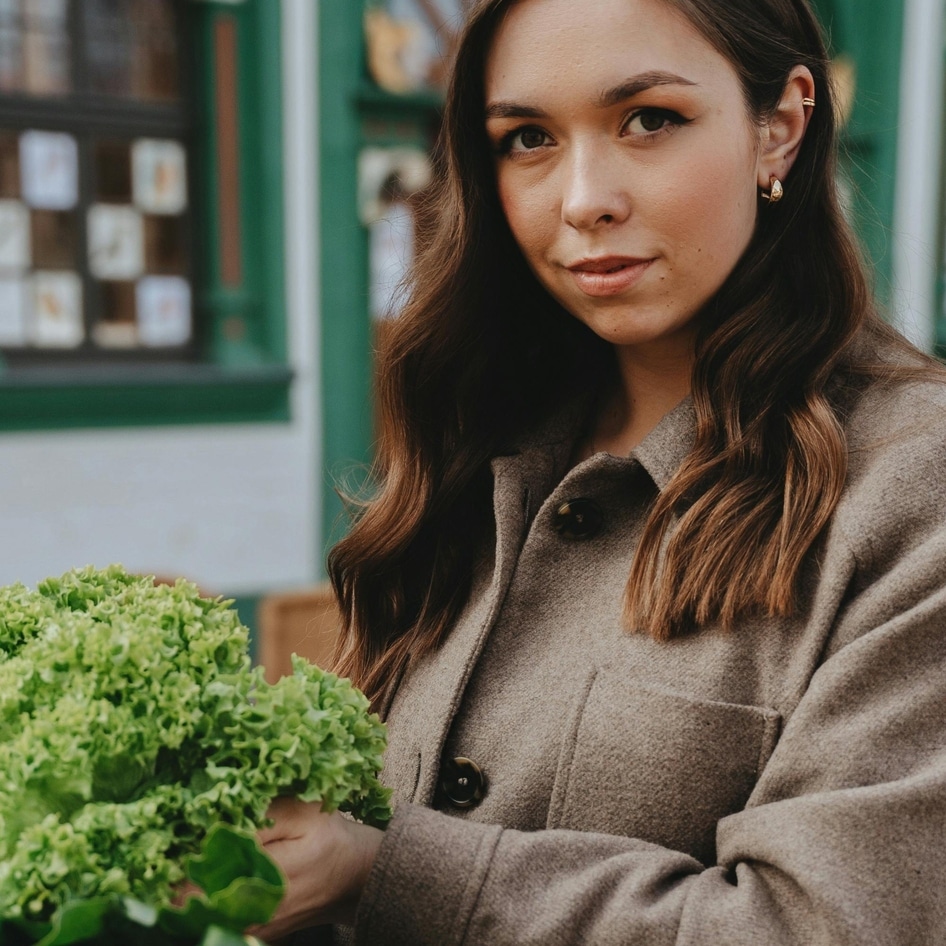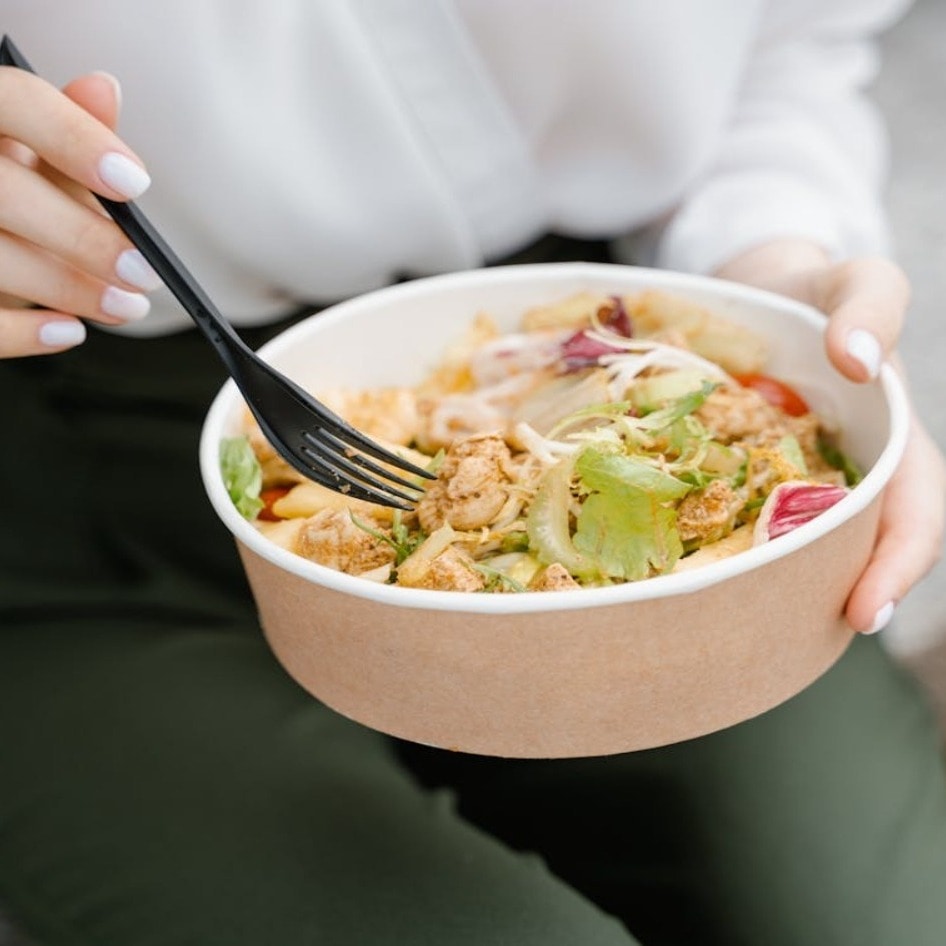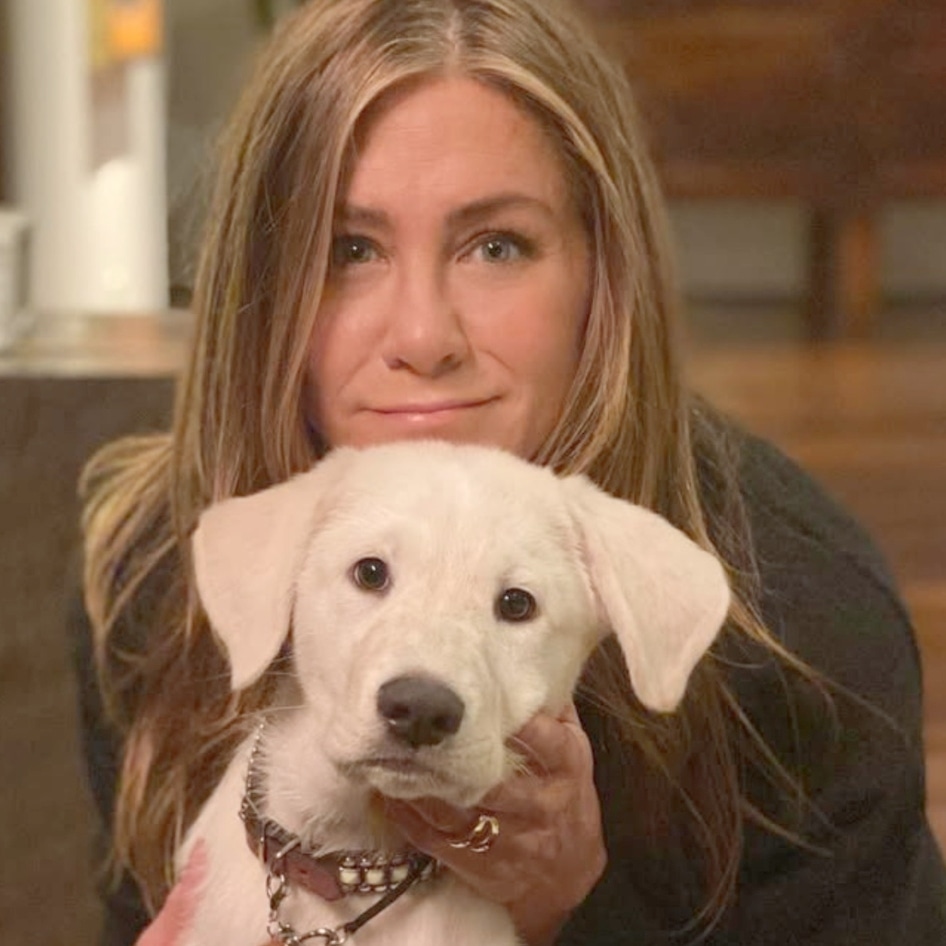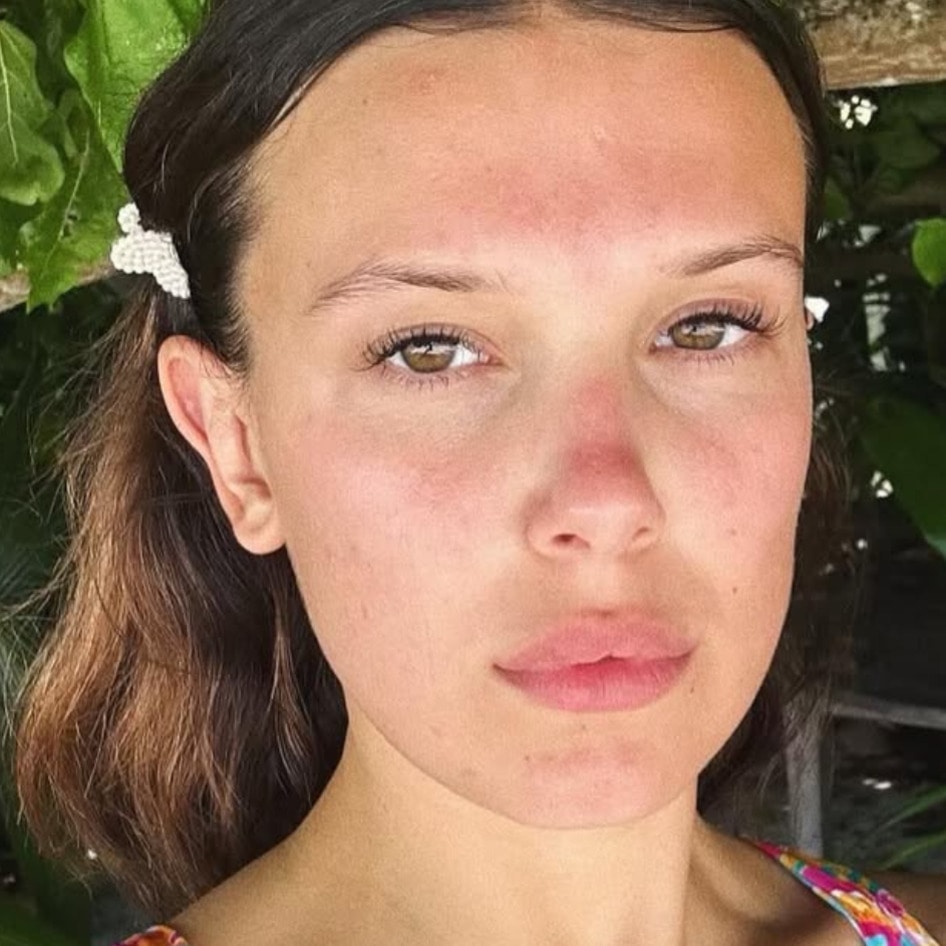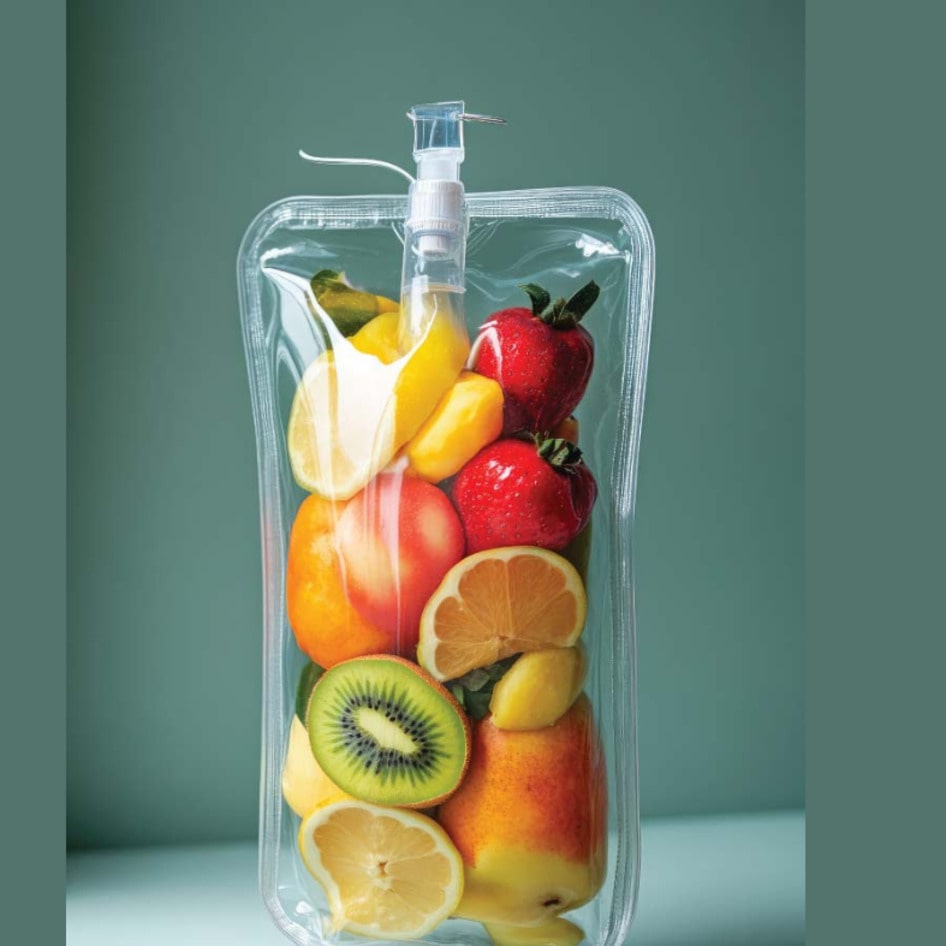Sabrina Carpenter is everywhere right now, and for good reason. Her recent hit singles have been dominating the charts (has anyone stopped humming “Espresso” yet?), and she’s in the midst of a headline-grabbing world tour—thanks, in part, to those viral Juno positions. But while her musical and performance talents are undeniable, there’s another thing fans just can’t get enough of: the hair, of course.
Carpenter’s thick, bouncy blonde locks have become the envy of many. But what’s her secret? And how can we achieve thick, shiny hair, too? The answer might be more surprising than you’d think. While hair products can certainly help, the real key to healthy hair may actually start with what’s on your plate.
To learn more, we spoke with Sapna Peruvemba, MS, RDN, registered dietitian and founder of Health by Sapna, who shared how the right foods can nourish your hair from the inside out.
How does Sabrina Carpenter get her hair like that?
First, let’s be honest—good hair has a lot to do with genetics. “Genetics provide the blueprint for hair characteristics, such as color, thickness, and texture,” explains Peruvemba. However, lifestyle factors like stress, exercise, and diet play a major role, too. “Genetics loads the gun, but lifestyle pulls the trigger when it comes to hair health,” she adds. “Poor nutrition, chronic stress, disease, and harsh hair treatments can accelerate hair thinning, even in someone with good hair genes.”
 Sabrina Carpenter
Sabrina Carpenter
There’s no doubt that during her high-energy, dance-heavy tour, Carpenter is getting plenty of regular exercise, which helps boost blood flow to the scalp and promote healthy hair growth. She’s also a fan of green tea, which is loaded with the antioxidant epigallocatechin gallate (EGCG), known to stimulate hair follicles.
That said, not all of Carpenter’s hair is natural. Reports suggest she uses extensions to achieve the extra length and volume needed for a stadium tour.
How to thicken hair naturally, according to a dietitian
For healthy, luscious locks, you might be tempted to try hair supplements. In fact, in 2024, the hair growth supplement market was valued at more than $830 million. Most of these contain biotin, which is a water-soluble B vitamin that plays a crucial role in maintaining healthy hair, skin, and nails.
But Peruvemba urges caution before splurging. “While a biotin deficiency can cause hair thinning, most people get enough from their diet, and supplementing beyond what the body needs does not promote additional hair growth,” she explains. However, she notes that vitamin B12 and vitamin D are especially important for plant-based eaters, as they play key roles in hair follicle function and overall health.
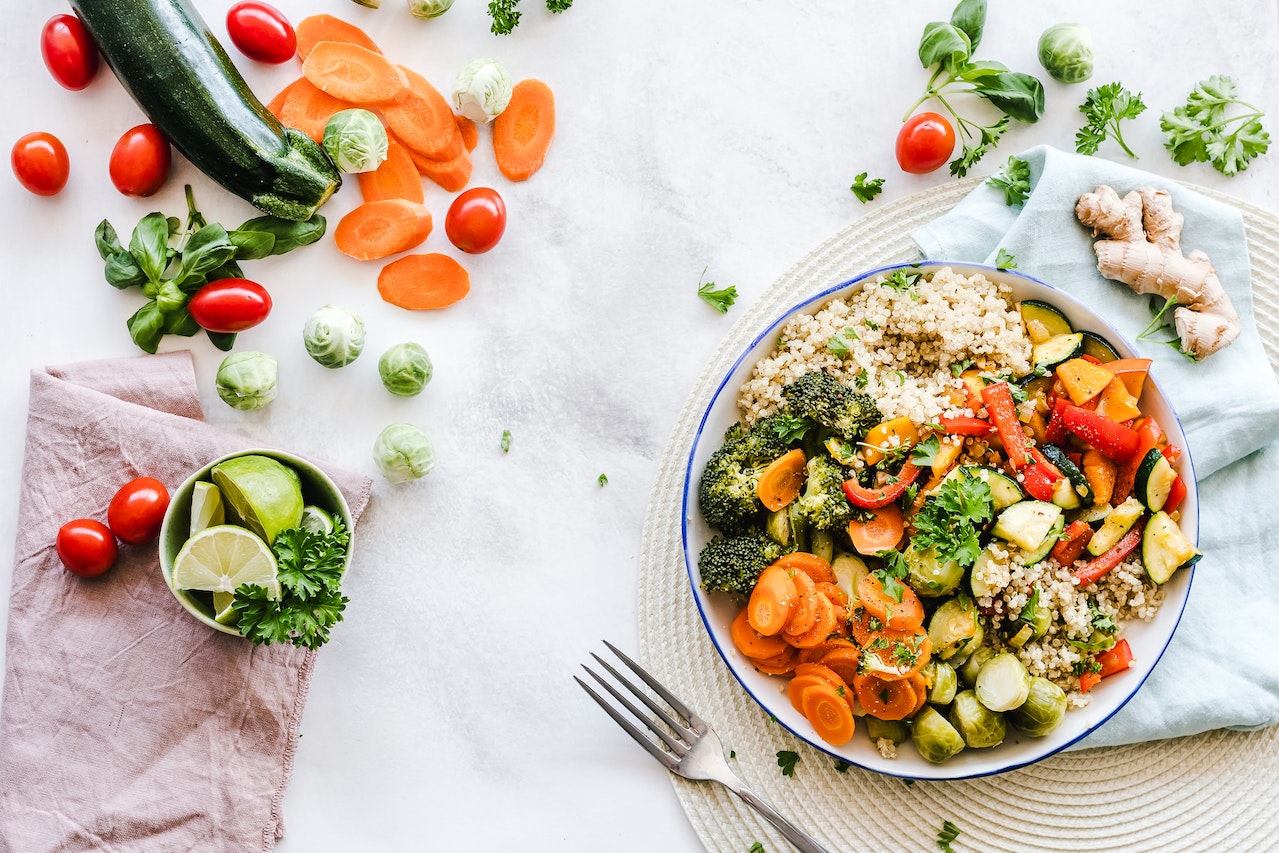 Ella Olsson | Unsplash
Ella Olsson | Unsplash
BECOME A VEGNEWS VIP: Get exclusive product deals, freebies, and perks galore!
A simpler and more cost-effective way to support hair growth is through diet. Nutrients like iron, protein, omega-3s, zinc, selenium, and copper—found in plant-based whole foods—are essential for healthy hair. Zinc, for example, helps prevent hair shedding, while omega-3s keep the scalp hydrated and reduce inflammation.
“Rather than relying on expensive supplements, focusing on a whole-food, nutrient-dense diet is the best strategy for long-term hair health. Fruits, vegetables, whole grains, nuts, seeds, and legumes naturally provide all the vitamins, minerals, and antioxidants your hair needs—without the risk of over-supplementation.”
Plant-based foods also tend to be rich in antioxidants. EGCG is one example, but curcumin (found in turmeric) may also help to promote hair health by reducing scalp inflammation, for example.
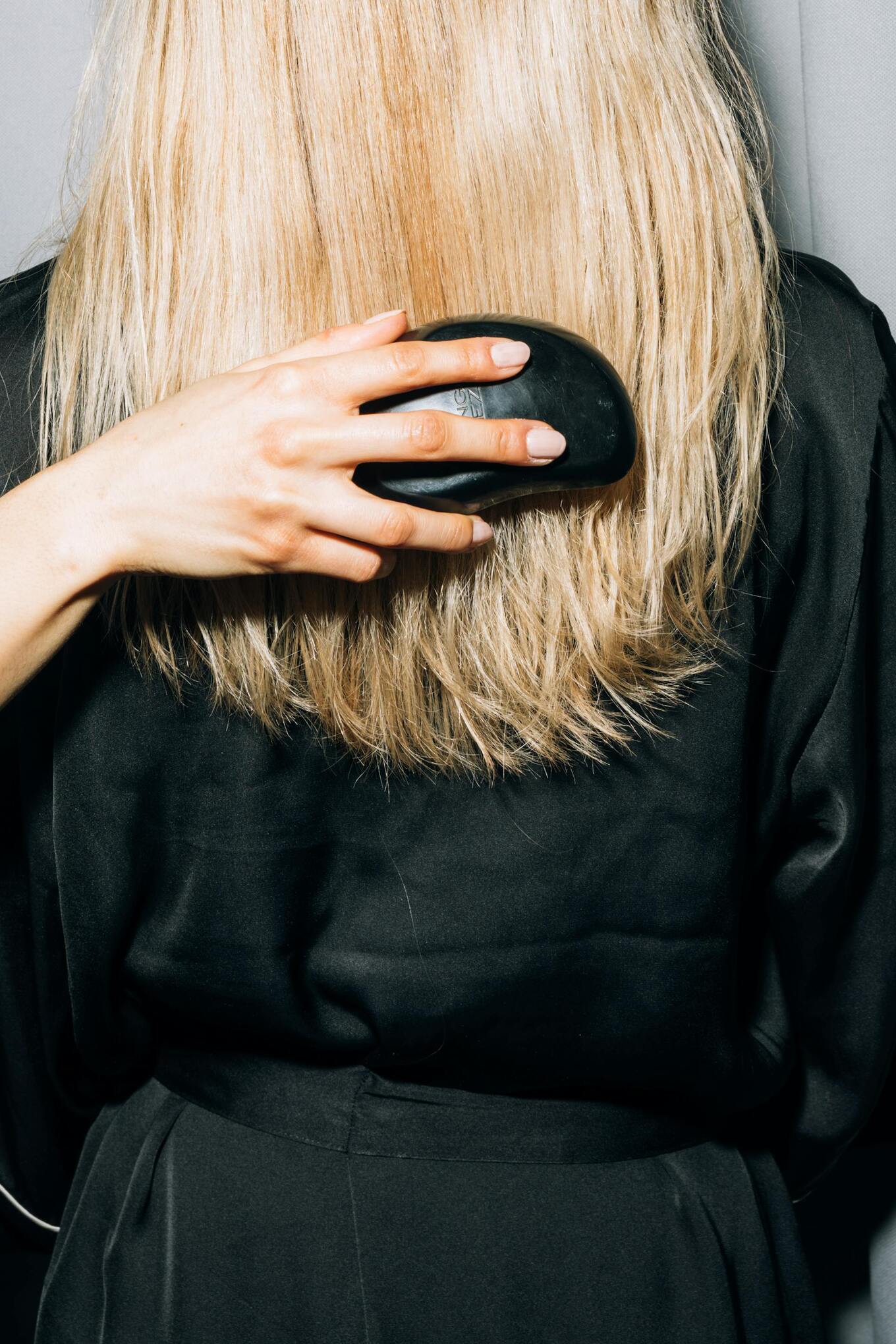 KoolShooters | Pexels
KoolShooters | Pexels
If you’re experiencing hair loss or thinning, Peruvemba recommends checking in with a healthcare provider to assess potential nutritional deficiencies. “If lab results show all levels within a healthy range, it’s likely that factors beyond nutrition are contributing to hair concerns,” she explains.
What to eat for hair just like Sabrina Carpenter, according to a dietitian
So what’s the best way to eat for a healthy head of locks just like Carpenter? Fill your plate with whole foods, says Peruvemba.
Beans and lentils, for example, are “high in iron, zinc, folate, and biotin to support follicle strength and hair growth.” Nuts and seeds can give you a boost of healthy fats, as well as vitamin E and selenium, which help protect against hair damage, while plant-based oils and avocado are key for a healthy shine. Leafy greens, berries, and citrus fruits are also nutrient-dense and packed with hair-boosting antioxidants.
“The best source of hair-healthy nutrients is food,” adds Peruvemba. “Whole plant-based foods provide not just isolated vitamins and minerals, but also fiber, antioxidants, and other beneficial compounds that work in synergy to support overall health—including your hair.”
For more plant-based stories like this, read:
JUMP TO ... Latest News | Recipes | Guides | Health | Subscribe

